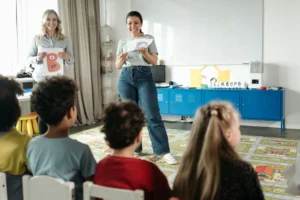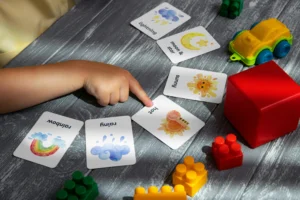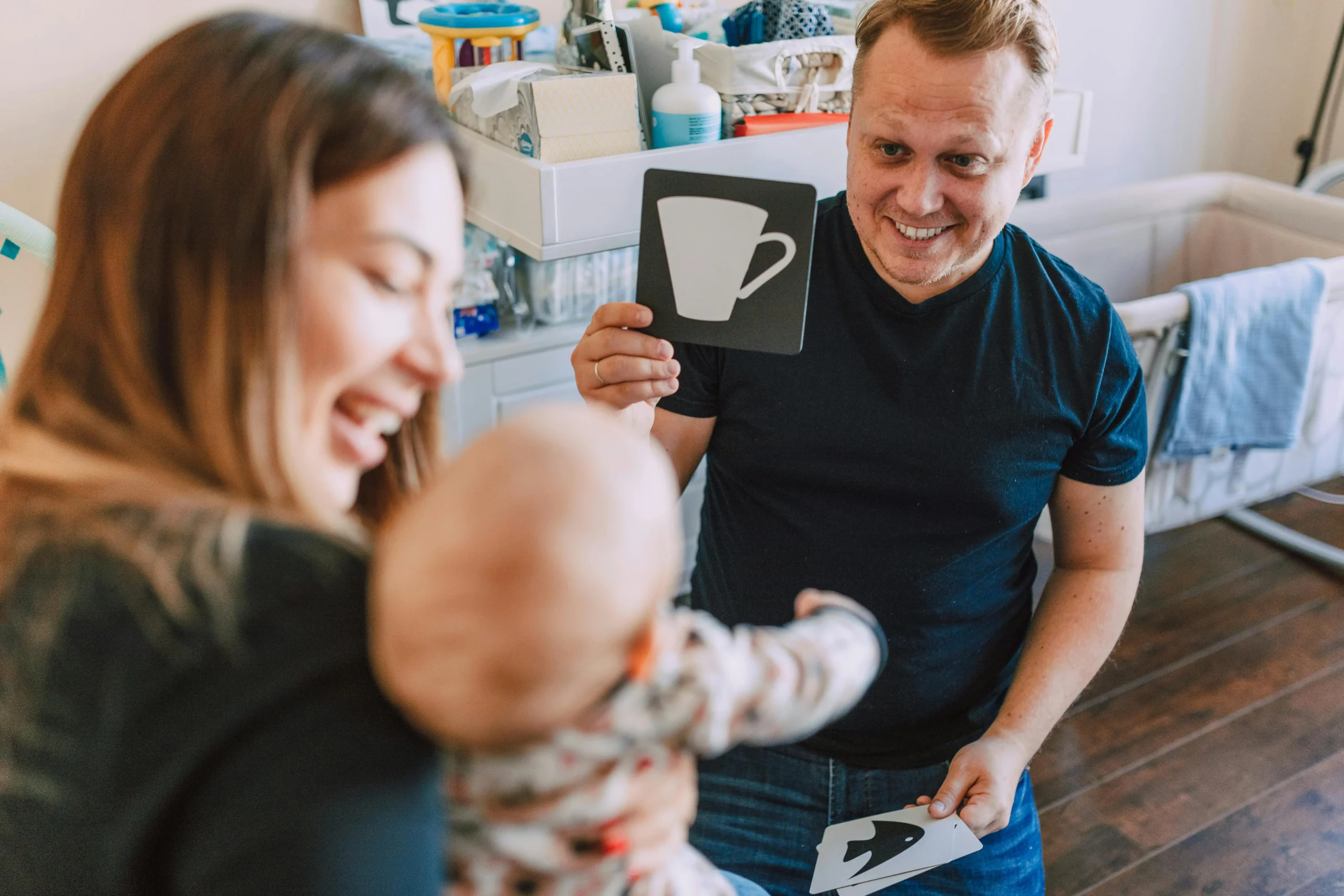In today’s world of constant stimulation, it’s no surprise that many parents are concerned about their child’s ability to stay focused. Whether it’s daydreaming during homework, struggling to follow instructions, or bouncing between tasks, the question of how to improve concentration in kids is more relevant than ever. But here’s the good news: attention struggles in children are normal...
How Flash Cards Enhance Memory, Focus, and Language Skills in Children
Flash cards have been a trusted learning tool for generations, and in recent years, they’ve made a powerful comeback, especially in early childhood education. Whether you’re a parent of a toddler, a preschool teacher, or a caregiver looking for screen-free learning activities, flash cards for kids offer an engaging, effective, and scientifically-backed method to boost cognitive development.
In this article, we’ll explore the numerous ways flash cards for kids can support memory retention, sharpen focus, and expand vocabulary. We’ll dive into the science, share creative ideas, and answer common questions that parents often have.
What Are Flash Cards and How Do They Help Children?
Flash cards are small cards bearing words, images, or a combination of both, used as learning aids. They are typically used to introduce or reinforce knowledge through quick, repeated exposure.
When designed thoughtfully, flash cards for kids become powerful tools to:
- Improve memory retention through visual and verbal repetition.
- Strengthen concentration and attention span by keeping sessions short and focused.
- Develop early language and vocabulary skills through interactive play.
How Flash Cards Help with Memory Retention

One of the core strengths of flash cards for memory is their alignment with how the brain naturally retains information. Let’s break it down:
Spaced Repetition & Active Recall
The human brain learns best when exposed to information repeatedly over spaced intervals. Flash cards for memory leverage this technique known as spaced repetition. This process reinforces neural pathways, helping children store and recall information more effectively.
Moreover, flash cards encourage active recall, the practice of retrieving information from memory, rather than passively reviewing it. This act of trying to remember boosts retention significantly.
Visual Learning & Cues
Children are naturally visual learners. The combination of bright images and bold text creates strong associations in a child’s mind. When you show them a card with a picture of a dog and say the word “dog,” you’re helping them link the image, sound, and concept simultaneously.
So, do flash cards for babies and toddlers really work? When used with consistency and interaction, the answer is a resounding yes.
Boosting Focus and Attention Span Through Flash Cards
In a world full of digital distractions, developing focus early on is crucial. Flash card games for kids are a great tool for this because they’re:
- Short and engaging: Sessions can last 5–10 minutes, making them perfect for individuals with short attention spans.
- Screen-free: Unlike digital tools, flash cards for kids don’t overstimulate, making it easier to focus.
- Interactive: Children physically touch, hold, and move cards, adding a kinesthetic element that enhances focus.
Movement + Visuals = Better Focus
Combining movement with visuals (e.g., having a child pick the correct flash card from a set on the floor) helps increase both attention and retention. It creates a multi-sensory experience that anchors the learning process.
Enhancing Language and Vocabulary Development
Language acquisition is one of the most significant benefits of using flash cards for kids. Here’s how:
- Bilingual Flash Cards: These introduce children to two languages simultaneously, strengthening both vocabulary and cognitive flexibility.
- Words and Phonics Made Easy: Phonics-based flash cards for memory linking sounds with letters, setting the foundation for reading.
- Picture Cards: Young children grasp concepts more easily when they can connect a word with a clear, colorful image.
Many flash card games for kids are designed to teach synonyms, antonyms, word families, and everyday vocabulary in a fun, engaging way.
What Age Is Best to Start Using Flash Cards?
Parents often wonder, “Is my child too young for flash cards for babies?” Here’s a general guide:
- Infants (0–12 months): High-contrast black-and-white cards are best for stimulating visual development.
- Toddlers (1–3 years): Focus on cards with images: objects, animals, and family members work well. You can choose any topic of your child’s interests.
- Preschoolers (3–5 years): More complex sets involving actions, opposites, and early reading concepts can be introduced.
The key is to manage expectations. Don’t expect your toddler to sit still for long or recite words perfectly. Instead, look for signs of engagement and enjoyment.
Are Flash Cards Scientifically Backed?
Absolutely. Neuroscience supports the use of visual stimuli and repeated exposure in early childhood learning. Studies show that visual aids enhance memory formation, especially when tied to interaction.
Research on spaced repetition has shown that learners (even very young ones) retain information longer when content is revisited periodically.
Teacher and Pediatrician Viewpoints
Many educators use flash cards for kids to reinforce phonics, numbers, and shapes. Pediatricians often recommend flash cards for babies as part of early language development, especially in cases of speech delay or language processing concerns.
Fun and Creative Flash Card Activities for Home and Class

Flash card games for kids don’t have to be repetitive or boring. Here are some fun ideas:
- Matching Games: Match pictures to words, or upper case letters to lower case.
- Memory Races: Lay cards face down and take turns flipping and matching pairs.
- Storytelling with Flash Cards: Pick a few cards and create a silly story around them.
- DIY Flash Cards: Involve kids in making their own flash cards. Drawing or coloring makes learning personal.
- App-based vs Physical Flash Cards: While apps can supplement, physical cards offer tactile benefits and reduce screen time.
Flash Cards for Infants
Using flash cards for babies might seem surprising, but it plays a big role in early visual and auditory development. High-contrast cards (black and white) are particularly effective for newborns, helping them focus their still-developing eyesight.
As they grow, cards with single images and clear words support object recognition and word association.
FAQs
Are flashcards good for 2-year-olds?
Yes! Just keep sessions short and fun. Use flash cards for kids with bold images and basic words to build vocabulary and confidence.
How often should I use flashcards with my toddler?
A few minutes a day is enough. Consistency matters more than duration.
Can flashcards help with speech delay?
Yes. Flash cards for babies and toddlers can improve word recognition, verbal repetition, and overall language processing.
Should I use flashcards or books for teaching vocabulary?
Both! Books provide narrative structure, while flash cards for kids offer quick, focused repetition.
What are the disadvantages of flashcards?
When overused or used passively, flashcards can become boring. Avoid forcing repetition. Keep it interactive and enjoyable.
Conclusion
Whether you’re working on early literacy, attention skills, or simply want to make learning playful and interactive, flash cards for kids are an excellent choice. With a little creativity, you can turn everyday moments into learning opportunities.
From flash cards for memory to flash card games for kids, the possibilities are endless. They support language development, promote active engagement, and are backed by both tradition and science. Start young, stay consistent, and make it fun – that’s the magic formula.
So, next time you’re packing your child’s play bag, don’t forget to slip in a set of flash cards for kids. Their brains will thank you for it.
Tickle Right, our holistic brain development programme, uses flashcards as well as other engaging learning aids and activities to develop an array of vital life skills such as photographic memory, creative thinking, empathy, intuition, scientific curiosity, and more. Attend a free orientation at a centre near you to learn how you can raise a genius.

